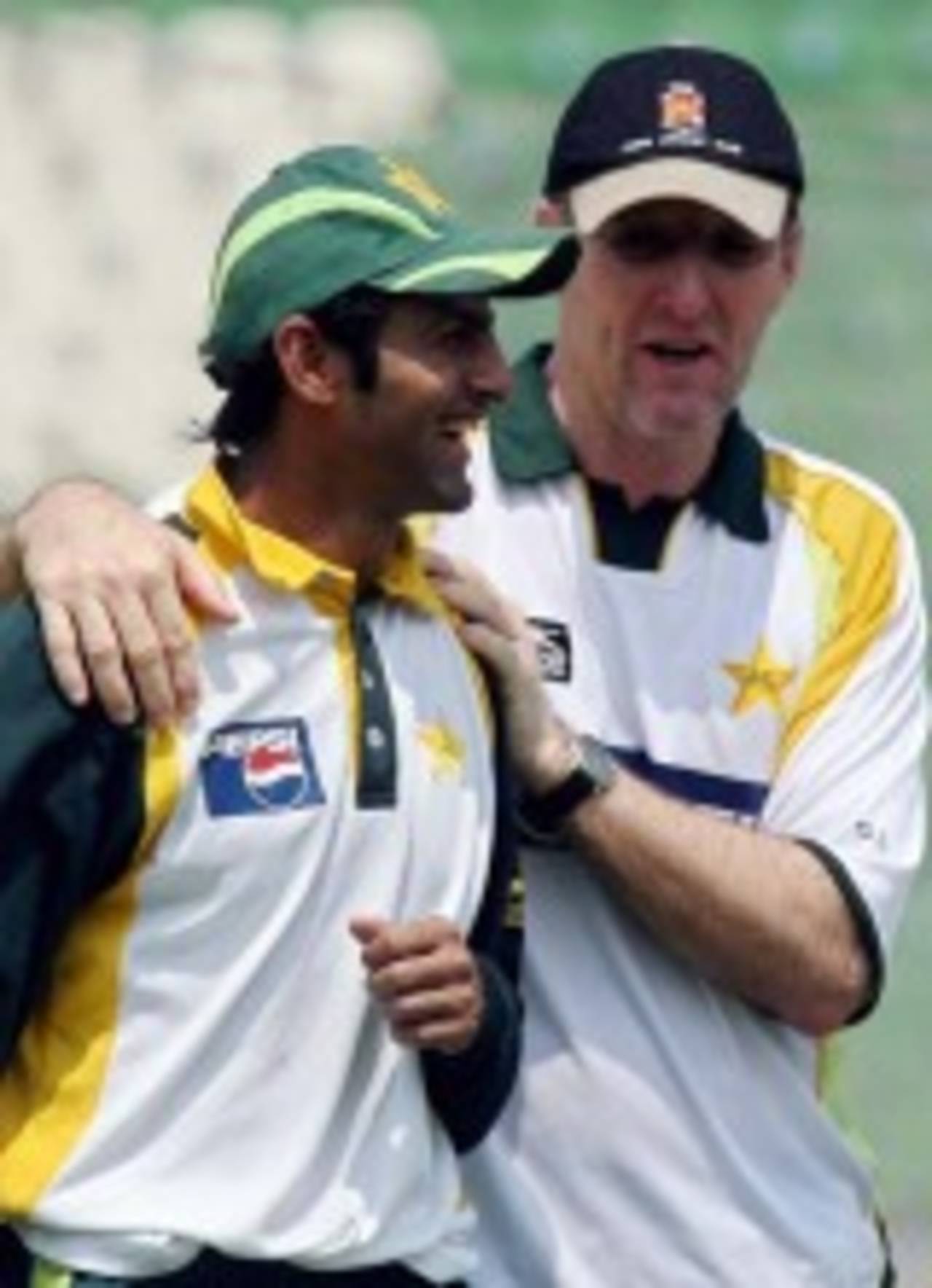Whatever political turmoil Pakistan endures, cricket will soar above any press blackouts, house arrests, curfews and martial law. The Pakistan Cricket Board is always willing to play, as if fearful that when cricket stops the pulse of the nation will stop with it and the United Nations will certify Pakistan as an irredeemable basket case.
Indeed, Pakistan's rulers have sought the success of their cricket team to help overcome unpopularity over tricky domestic and international crises. But this current tour of India begins with little prospect of cricketing rescue. Shoaib Malik's team are an unconvincing bunch, unsure of their best batting or bowling options.
The World Twenty20 was an uplifting beginning, but the longer the version of cricket the greater the magnification of weaknesses. Frustratingly, Pakistan's failings have become constants, insoluble problems beyond the wit of captain, coach, or cricket board. It is early to judge captain and coach, of course, but now is their opportunity to carve changes, an opportunity they seem reluctant to take.
The blight of modern Pakistan cricket has become the situation of the opening batsmen. It would be hard to argue that Pakistan cricket is any closer to solving this problem than it was immediately after the 2003 World Cup. This is inexcusable. The dilemma was highlighted by the farce of vice-captain Salman Butt being unable to hold onto his place. As Geoff Lawson has suggested, Pakistan need to choose two openers and give them a run. That could mean an opportunity for Butt and Yasir Hameed. All will be revealed tomorrow.
Just as depressing is the wicket-keeping slot. Kamran Akmal has performed miserably for over a year, right back to last year's tour of England when Bob Woolmer was calling in experts to help correct fundamental flaws in Akmal's glovework. Hardly a game goes by without Akmal making a major blunder. As much as everybody wills him to recover his form, can this really be the way to manage Pakistan's wicket-keeping position? Pakistan need to find a safe pair of hands behind the stumps and this has to be Akmal's last chance.
The bowling, despite the loss of Mohammad Asif, is the least troublesome, partly because Asif isn't quite as adept in one-day cricket as he is in Tests. If - and it is a gigantic if - Shoaib Akhtar can stay fit and free of trouble, a Pakistan pace attack of Akhtar, Umar Gul, and Sohail Tanvir or Rao Iftikhar Anjum has a more formidable look about it than one spearheaded by Asif, simply because Asif has yet to work out the variations in length and pace that are essential for success in one-day cricket on unhelpful wickets. Without Akhtar and Asif Pakistan will be in trouble.
Shahid Afridi is another bowling asset and Pakistan's most improved one-day bowler. But facing India's batsmen on home turf will be a genuine test of his development and his status as an international class leg-spinner. The Afridi conundrum continues in other areas. Views are divided between him opening the batting and batting lower down the order. Lawson's argument that his age determines he should not open doesn't hold water when you consider the age of Sanath Jayasuria, Matthew Hayden, and Adam Gilchrist.
Finally, Pakistan have missed another opportunity to appoint Afridi as one-day vice-captain. Younis Khan might make sense for Tests but in one-day cricket Afridi is a natural leader, and a sense of responsibility might even help his batting. Imagine vice-captain Afridi opening the batting against India?
However you look at it Pakistan are not quite ready for this tour of India. The team combination is unsettled. The captain has failed to translate his command of the Twenty20 arena into control over the longer versions of the game. And the South Africa tour brought with it an unwelcome tag of 'chokers.'
On the bright side, India have their own problems and Pakistan can learn from their bitter experience against South Africa. But the central problem for Pakistan cricket over the last decade is that it has failed to learn from mistakes and experiences. Until the organisation that is Pakistan cricket, and this includes the cricket board and the players, is able to become a learning organisation we will be discussing the same issues in a decade from now.
But the immediate challenge is India at home, and it will be a tough one. Let's see how quickly Malik and Lawson are able to learn.
Kamran Abbasi is an editor, writer and broadcaster. He tweets here

